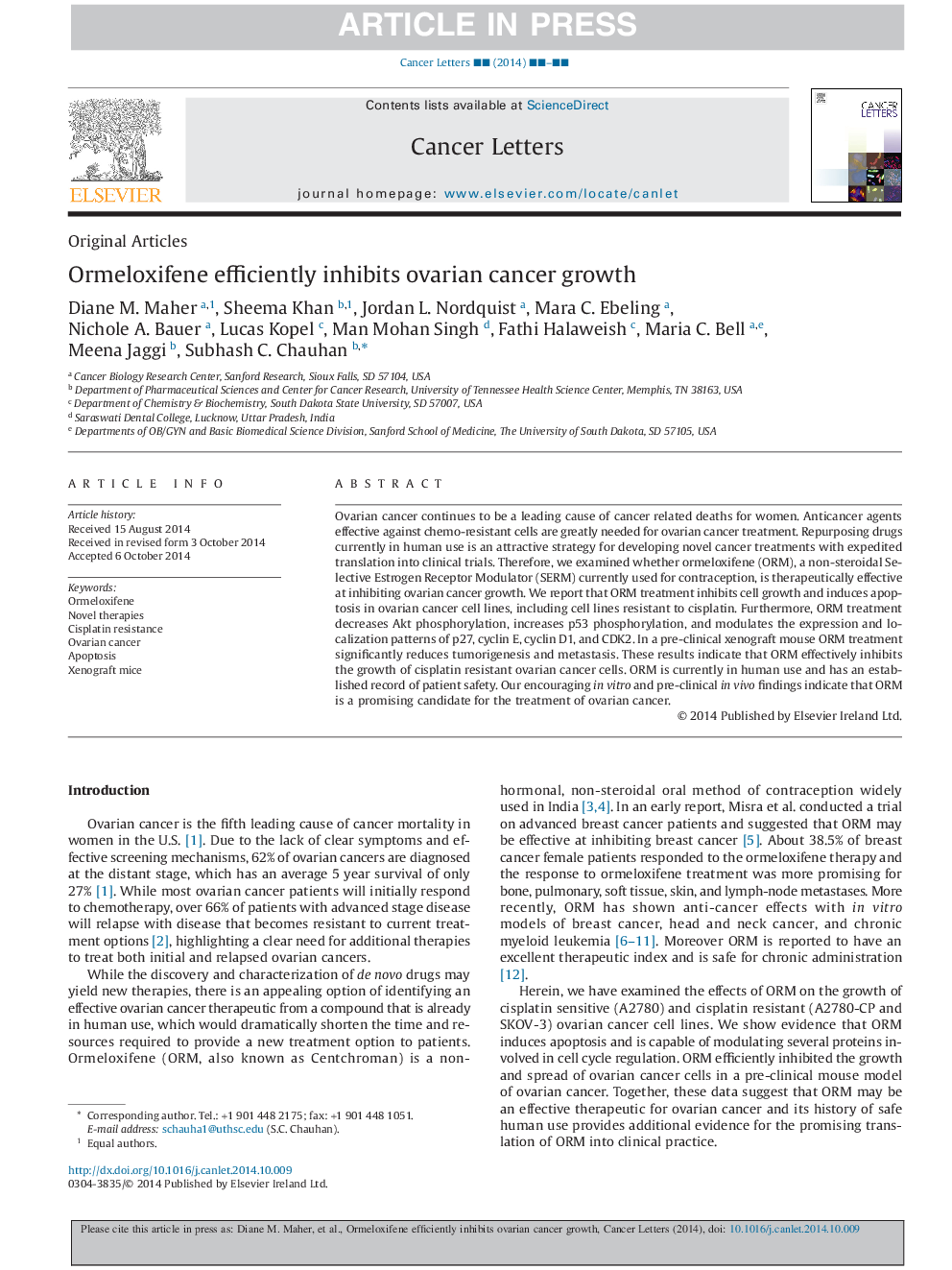| Article ID | Journal | Published Year | Pages | File Type |
|---|---|---|---|---|
| 10899698 | Cancer Letters | 2015 | 7 Pages |
Abstract
Ovarian cancer continues to be a leading cause of cancer related deaths for women. Anticancer agents effective against chemo-resistant cells are greatly needed for ovarian cancer treatment. Repurposing drugs currently in human use is an attractive strategy for developing novel cancer treatments with expedited translation into clinical trials. Therefore, we examined whether ormeloxifene (ORM), a non-steroidal Selective Estrogen Receptor Modulator (SERM) currently used for contraception, is therapeutically effective at inhibiting ovarian cancer growth. We report that ORM treatment inhibits cell growth and induces apoptosis in ovarian cancer cell lines, including cell lines resistant to cisplatin. Furthermore, ORM treatment decreases Akt phosphorylation, increases p53 phosphorylation, and modulates the expression and localization patterns of p27, cyclin E, cyclin D1, and CDK2. In a pre-clinical xenograft mouse ORM treatment significantly reduces tumorigenesis and metastasis. These results indicate that ORM effectively inhibits the growth of cisplatin resistant ovarian cancer cells. ORM is currently in human use and has an established record of patient safety. Our encouraging in vitro and pre-clinical in vivo findings indicate that ORM is a promising candidate for the treatment of ovarian cancer.
Related Topics
Life Sciences
Biochemistry, Genetics and Molecular Biology
Cancer Research
Authors
Diane M. Maher, Sheema Khan, Jordan L. Nordquist, Mara C. Ebeling, Nichole A. Bauer, Lucas Kopel, Man Mohan Singh, Fathi Halaweish, Maria C. Bell, Meena Jaggi, Subhash C. Chauhan,
